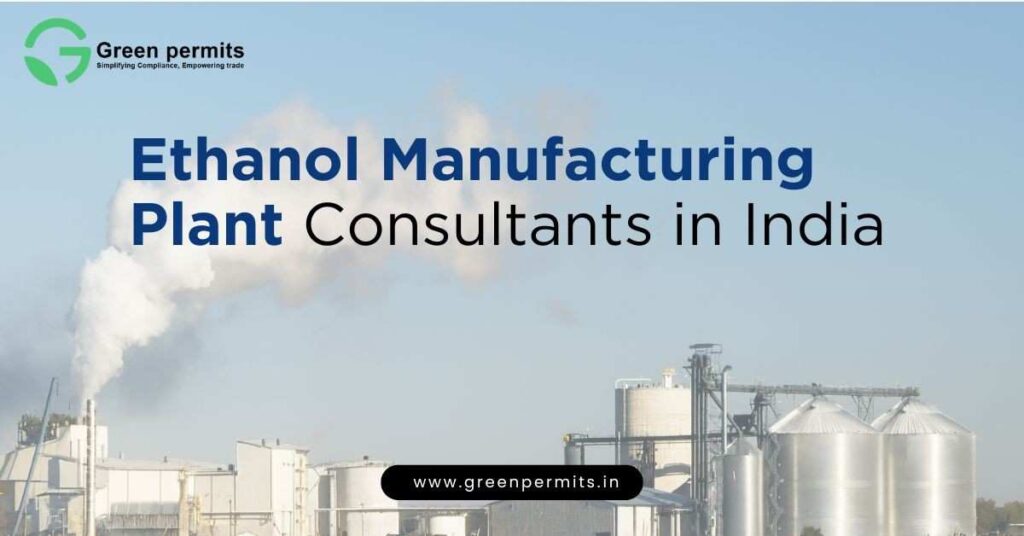India’s ethanol story is unfolding at record speed. From just 1.5% blending a decade ago, the country is now racing toward the government’s target of 20% ethanol blending in petrol by 2025. In FY 2023–24 alone, over 600 crore litres of ethanol were produced, backed by ₹41,000 crore in loans sanctioned for new plants. More than 600 ethanol projects have already been approved nationwide.
Yet, for entrepreneurs and manufacturers, the journey to establishing an ethanol plant is not just about technology—it’s about navigating a maze of compliance, certifications, and government approvals. That’s where ethanol manufacturing plant consultants come in: helping businesses reduce risks, cut delays, and access subsidies.
Takeaway: Setting up an ethanol plant in India requires not just investment, but regulatory expertise to move from concept to commissioning smoothly.

India imports 85% of its crude oil needs, which puts immense pressure on foreign exchange. Ethanol blending helps reduce this dependency while creating a domestic renewable fuel ecosystem.
Takeaway: Ethanol is not just an energy alternative—it’s an economic opportunity aligned with India’s energy security and sustainability goals.
Choosing the right plant type depends on raw material availability, investment scale, and government policy incentives.
Takeaway: Consultants can guide which ethanol plant type aligns best with your region, feedstock, and subsidy eligibility.
To set up an ethanol manufacturing plant in India, multiple approvals are required from central and state agencies. A consultant ensures these are obtained in the right order:
Takeaway: Missing even one clearance can stall the project for months—consultants ensure every permit is secured on time.
Setting up a plant involves a sequence of activities. Here’s how consultants streamline the journey:
Takeaway: A consultant reduces approval time by 6–8 months, ensuring faster commissioning.
Takeaway: Ethanol is a booming business—backed by numbers, not just policy.
| Parameter | 2024 | 2025 |
|---|---|---|
| Avg. Approval Time (CTE + CTO) | 9–12 months | 6–8 months (digital fast-track) |
| BIS Certification Fee | ₹2–5 lakhs | ₹2–5 lakhs (faster online system) |
| Govt Loan Sanctions | ₹35,000 crore | ₹41,000 crore |
| Subsidy Coverage | Up to 30% of project cost | Up to 40% of project cost |
Takeaway: Policies in 2025 make ethanol projects faster, cheaper, and more attractive for investors.
A leading agro-company in Uttar Pradesh planned to set up a grain-based ethanol plant. Initially, they faced roadblocks with multiple approvals—SPCB consent, BIS certification, and subsidy filings.
By partnering with consultants, the company:
Takeaway: With consultants, ethanol plants move from planning to profit much faster.
Takeaway: Consultants don’t just file forms—they ensure your ethanol plant is built on a solid compliance foundation.
At Green Permits, we specialize in guiding businesses through the full ethanol plant journey:
Takeaway: With Green Permits, you get an end-to-end compliance and consulting partner—not just paperwork support.
You need CTE & CTO from SPCB, Environmental Clearance (MoEFCC), BIS certification, and factory licensing.
A medium-sized plant may require ₹100–150 crore, depending on feedstock and capacity.
On average, approvals take 6–12 months, but with consultants, this can be reduced.
Government offers 30–40% capital subsidies and interest subvention on loans.
Yes, subject to FDI norms, environmental clearances, and CPCB registration.
Yes, BIS certification is mandatory for ethanol supplied to OMCs for blending.
Looking to set up your ethanol manufacturing plant in India?
Partner with Green Permits for smooth approvals, subsidies, and compliance.
📞 Call us: +91 7835006182
📧 Email: wecare@greenpermits.in
🌐 Visit: www.greenpermits.in